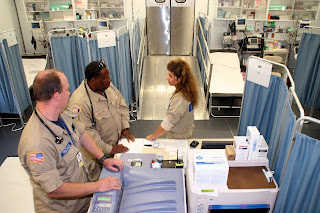Total Knee Replacement Baltimore MD: Do you Need One?
Walking is an essential part of everyday life, and there are a lot of different parts of the body that make it possible to move around freely. The spine, the feet, the ankles, hips and knees all work together each time your legs move, so an injury or pain in any of these areas can make things difficult - and even really uncomfortable. Since people walk thousands of miles each year,many people will experience injuries to multiple parts of the body, but the knees are often impacted a great deal. A total knee replacement Baltimore MD may seem like a last ditch effort to return comfort to the act of moving around on your own two feet, but the reality is that this is a common solution to many different issues.Though there are many reasons that people opt to get this procedure done, there are many specific groups of people that will choose this route.
Different Kinds of People that May Benefit from a Total Knee Replacement Baltimore MD
Athletes: Even though getting a total knee replacement may seem like a career ending surgical procedure, this isn’t always the case. People often severely injure themselves while playing a sport that they love, making it necessary to undergo this procedure. Even though it means a lengthy recovery period and a lot of time spent making sure that the knee joint is functional, it is entirely possible for athletes that undergo knee replacement to get back out and keep on competing.
Overweight individuals: In the case of those that are either overweight, or were overweight and have lost many pounds, total knee replacement in Baltimore is an option to repair the knee joints that were injured and impaired by the excess weight that was (or is) being carried around. This surgery can make it easier for people to move around and continue to lose weight - even motivating more weight loss in the future, too. The knees are under a lot of stress each day, and this is exacerbated by additional weight being added to the body.
The elderly: Even though people of all ages may need this type of surgery, it is common in people who have lived for many years and have done a lot of walking, running or activities that have strained the knees and the entire body. Knee replacement is an extensive surgery, but it can help people to improve their quality of life, ensuring that many more years of being able to enjoy things like exercise, walking, running or even working are possible.
For more information, check out https://www.medstarunionortho.org.






